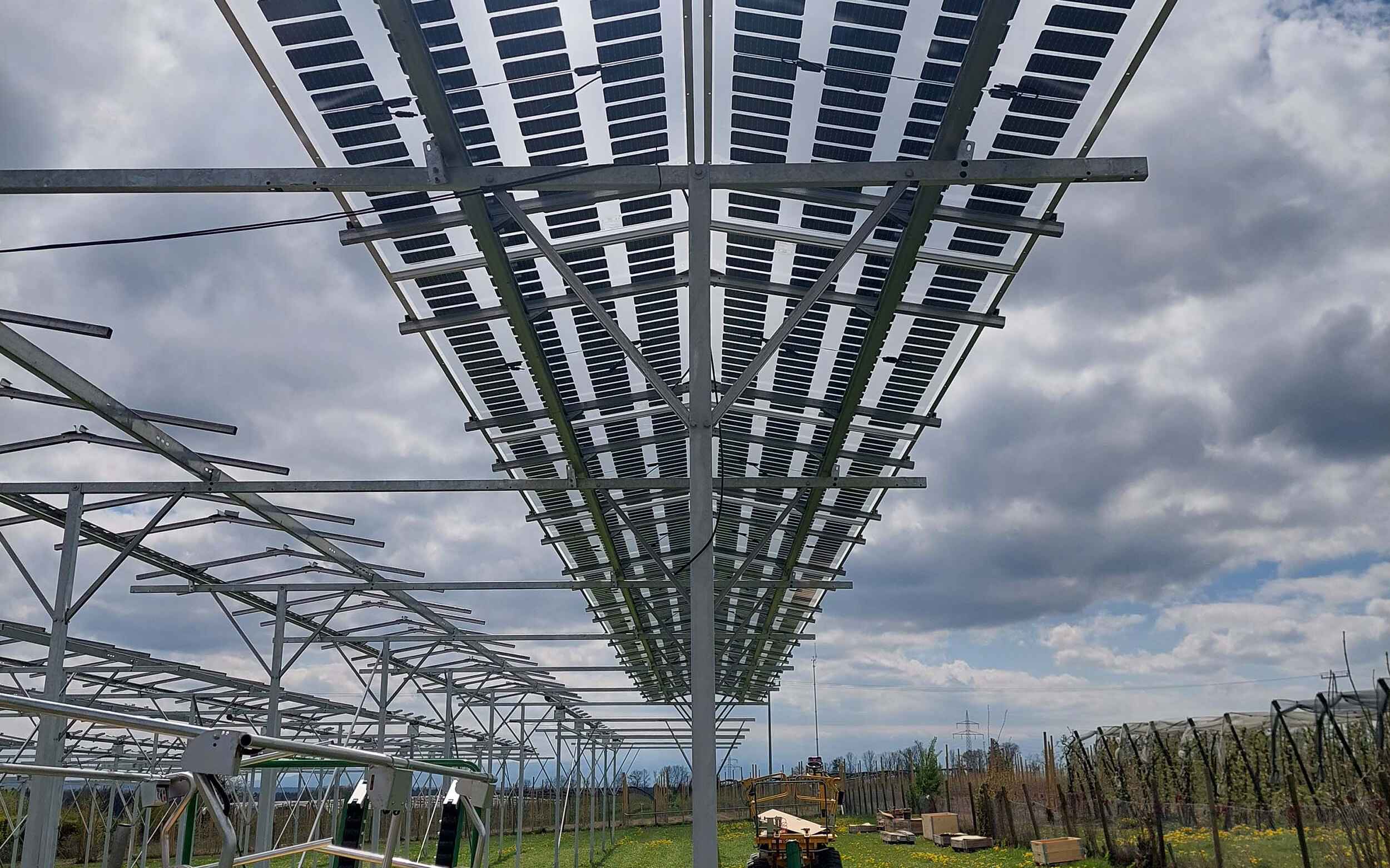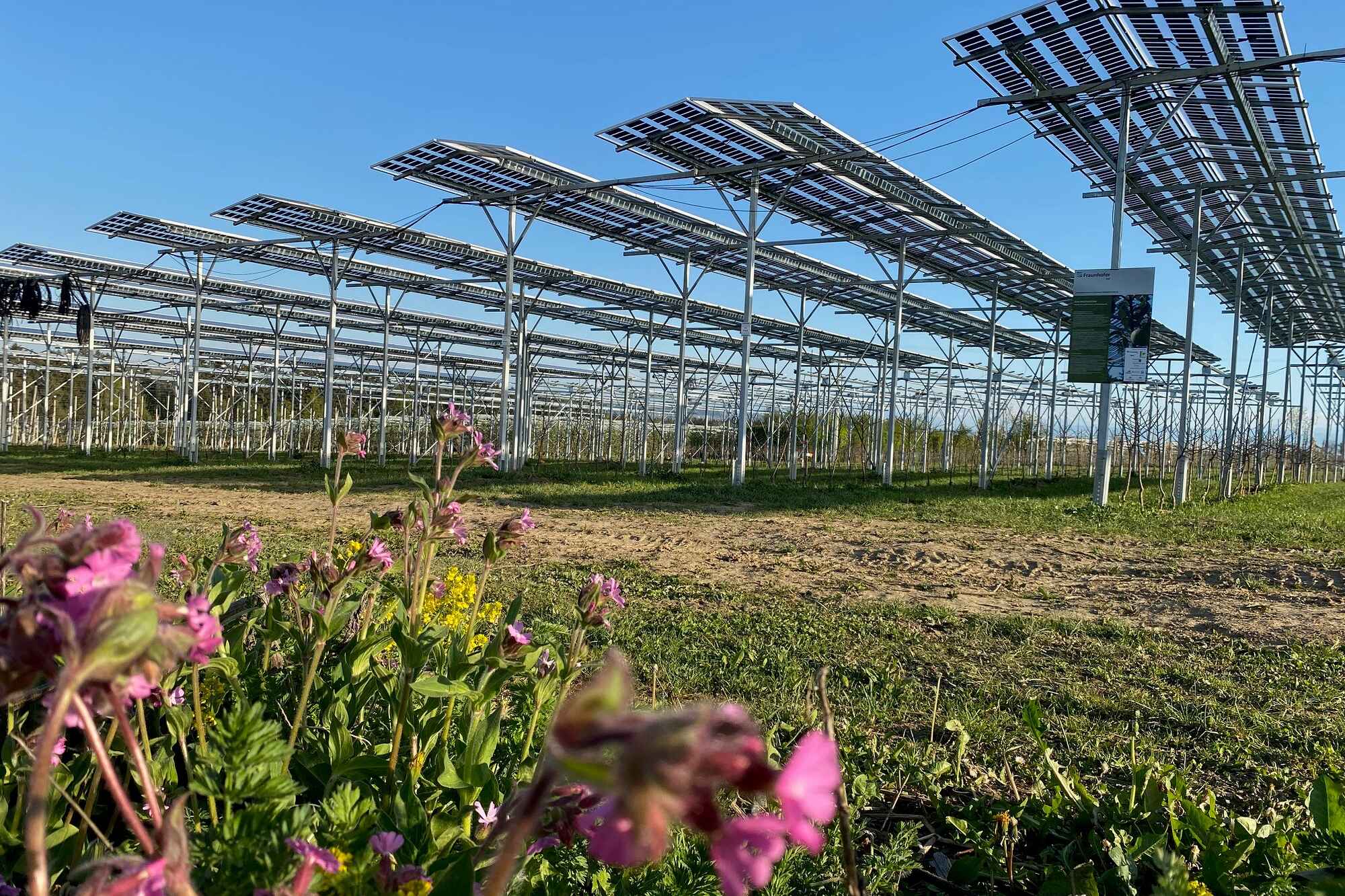
KOB
Research Agri-PV project in collaboration with Fraunhofer Institute
The Bodensee Agri-PV project is a research initiative involving the installation of photovoltaic plants above an apple plantation at the “Kompetenzzentrum Obstbau-Bodensee” in Bavendorf. Two PV plants, with a total power of 226 kW, have been installed to generate solar power while simultaneously protecting apple cultivation. Solar modules have been installed directly on top of the apple trees, covering two-thirds of the cultivation area. An elaborate simulation has demonstrated that 70% of the necessary light for apple cultivation is available across the entire area. A collateral research study lasting 4-5 years will investigate the impact of these PV plants on fruit yield and apple quality. The project aims to reduce pesticide use through partial roofing provided by the agrivoltaic plants, promoting ecological cultivation. The project is supported by the Ministry of Environment and Agriculture of Baden-Württemberg and coordinated by the Fraunhofer Institute.
The goal of the project is to identify the potentials and difficulties of Agri-PV and to promote the development of the new technology. The aim is to develop and implement Agri-PV prototypes for pome and soft fruit cultivation. The focus is on safe and high-quality fruit production with additional solar power production.
Agri-PV systems offer numerous benefits by combining agricultural productivity with renewable energy generation, enhancing both environmental sustainability and economic efficiency.
Agri-PV allows for the simultaneous use of land for both agricultural production and solar power generation, optimizing land resources.
The elevated solar modules protect crops against adverse weather conditions such as heavy rain, storms, and hail, reducing potential crop damage.
By reducing exposure to extreme weather and optimizing light conditions, Agri-PV can lead to better quality yields, with reduced instances of sunburn and frost damage.
The partial roofing effect of the solar panels decreases moisture buildup, lowering the risk of mold and pests, which in turn reduces the need for chemical pesticides.
The electricity generated can be used on-site, reducing energy costs for agricultural operations like fruit cooling systems, with excess power fed into the local grid for additional revenue.
The Bodensee project includes a 4-5 year research study to explore the impacts on fruit yield and quality, contributing valuable data for the future of sustainable agriculture.
